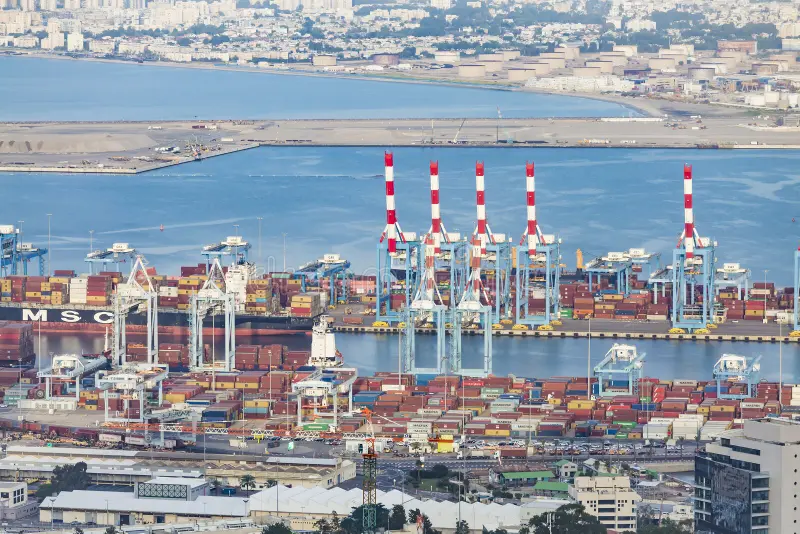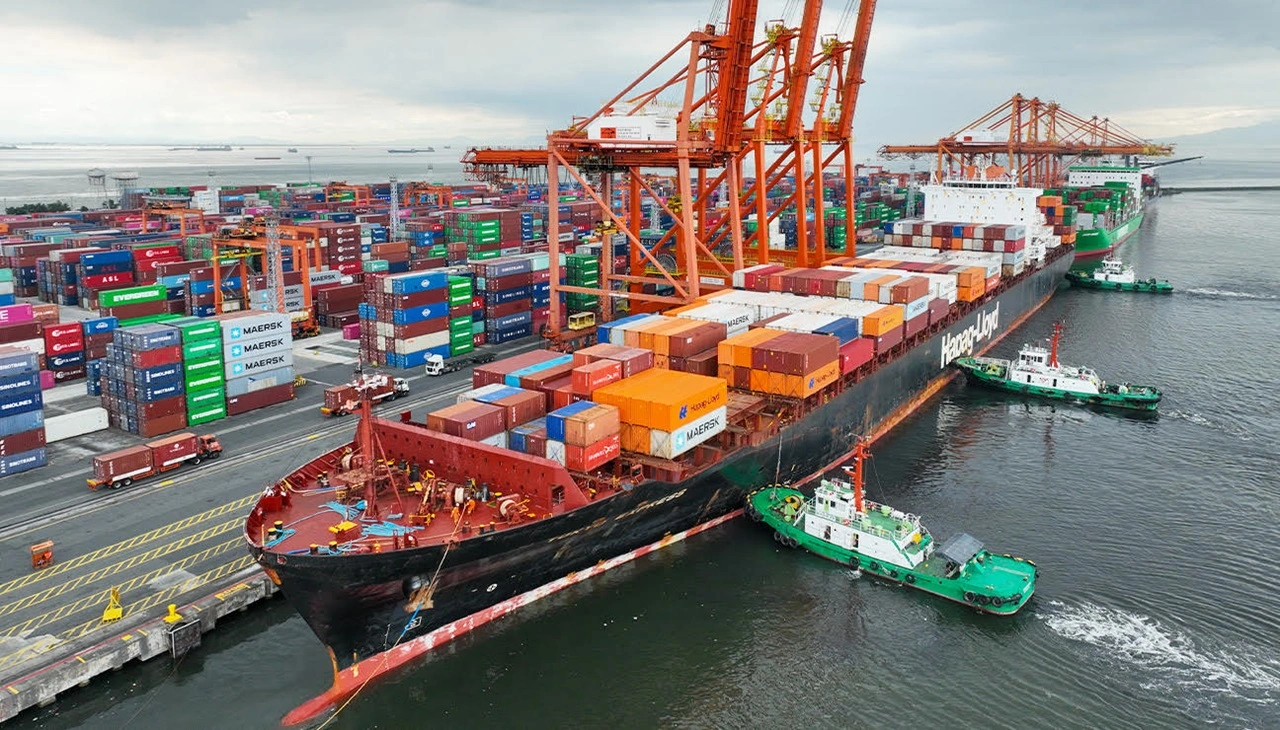🧭 Overview: Trade Unshaken Despite Escalating Conflict
Despite escalating military tensions between Israel and Iran, Israel’s key ports—Haifa and Ashdod—have remained fully operational in the face of new missile strikes. These developments underscore Israel’s robust port infrastructure and its critical importance to both regional and international trade routes.
While war risk premiums have surged and security alerts have intensified, commercial maritime activity has not ceased. Industry stakeholders such as shipping line ZIM Integrated Shipping Services and logistics giant Kuehne + Nagel report that shipping schedules and port services are proceeding without major disruption.
⚓ 1. Haifa & Ashdod: Israel’s Strategic Port Hubs
Haifa Port
-
Israel’s largest port, handling nearly 30% of the country’s total container volume.
-
Location: Northern Israel, vulnerable to long-range missile strikes from Syria and Lebanon.
-
Despite a nearby missile landing over the weekend, no direct hit or material damage has been reported.
-
The port continues to process container traffic, and its digital infrastructure allows for rapid coordination under crisis.
Ashdod Port
-
Located closer to Gaza and the Sinai Peninsula.
-
Though frequently targeted during past conflicts, Ashdod has maintained normal operations in 2025.
-
Acts as a vital gateway for imports like food, fuel, construction materials, and consumer goods.
Both ports form the backbone of Israel’s import/export economy, making their uninterrupted function a national security and economic imperative.
🚨 2. War Risk Insurance Soars
Shipping to and from Israel has not halted, but it has become significantly more expensive:
-
War risk insurance premiums have increased threefold, from ~0.2% to as high as 1.0% of the ship’s hull value.
-
For large vessels valued at $100M, this equates to an extra $1 million per voyage.
-
These costs are passed on to importers/exporters, increasing the price of goods for Israeli consumers and foreign trade partners.
According to industry insiders, insurers are taking a case-by-case approach, with rates fluctuating daily based on intelligence updates and port-level assessments.
🌐 3. Broader Maritime Security Risks
Israel’s ports aren’t the only concern:
-
The Red Sea and Strait of Hormuz remain volatile due to Houthi activity and threats from Iranian-backed militias.
-
The Eastern Mediterranean is experiencing GPS jamming, AIS spoofing, and cyberattacks targeting port systems and vessels.
-
The Joint Maritime Information Center (JMIC) has flagged the region as a “Level 3 – Significant Risk Zone.”
Despite this, major maritime alliances such as 2M and THE Alliance have not rerouted vessels from Israeli ports, showing a measured confidence in Israel’s defense systems.
🏗️ 4. Impact on Supply Chains and Trade
Short-Term:
-
Delays are minimal—current average wait times in port hover around 1 day, which is within global norms.
-
No major rerouting to alternative ports such as Port Said (Egypt) or Piraeus (Greece) has occurred.
-
However, cargo owners are beginning to factor insurance surcharges and geopolitical risk into their pricing models.
Medium-Term:
-
Higher shipping costs and fuel price fluctuations may affect Israeli retail prices, especially for food and construction imports.
-
Multinational companies are reviewing Israel’s supply chain resilience, particularly in high-tech sectors like semiconductors and medical devices.
Long-Term:
-
If conflict escalates, expect increased use of air cargo and land routes via Jordan, despite higher costs.
-
Some logistics providers are exploring storage redistribution to reduce exposure at Israeli terminals.
🔎 5. Industry Reactions
ZIM Integrated Shipping Services (Haifa-based)
-
“All operations are currently proceeding as normal. We are monitoring the situation and coordinating with the Israeli Defense Forces (IDF),” a ZIM spokesperson stated.
Kuehne + Nagel
-
One of the world’s top freight forwarders, the company reports no cancellations or delays.
-
Clients have been advised to purchase supplementary insurance and allow flexible delivery windows.
International Shipping Associations
-
Associations like BIMCO and ICS have urged carriers to stay informed through satellite updates and risk alert platforms.
🌍 6. Global Implications
Regional Impact:
-
Gulf states and East African ports may see an uptick in traffic if tensions disrupt Israel’s shipping lanes.
-
Turkish and Egyptian ports are positioned to absorb overflow, but face their own political and infrastructure limitations.
Energy Markets:
-
Any disruption to shipping in Israel could spill over into crude oil and LNG markets, especially if vessels divert around the Red Sea or through the Cape of Good Hope.
Geopolitical Messaging:
-
Israel’s ability to maintain port activity during strikes sends a powerful message of deterrence and economic resilience.
📅 What to Watch Next
-
Insurance rate trends – Will the war risk premium stabilize or increase further?
-
Shipping line movements – Will major alliances reroute away from Israeli waters?
-
Defense outcomes – A sustained calm may encourage longer-term confidence in Haifa and Ashdod.
📝 BOTTOM LINE
While geopolitical tensions are high, Israel’s maritime gateways remain resilient. Haifa and Ashdod, pivotal to Israeli trade, are operating without major disruption, demonstrating the strength of the country’s infrastructure and defense capabilities. That said, the growing cost of insurance and the looming threat of escalation may test this resilience in the months ahead.
For now, global shippers, traders, and analysts are watching Israel—not just for headlines, but as a real-time case study in how modern ports adapt and endure under fire.





